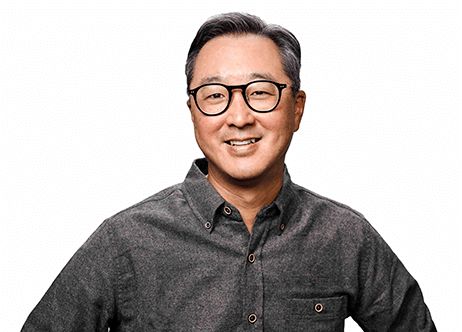"Because food is an everyday part of our life, we often seek to protect the idea that it is not in crisis and can sometimes avoid facing the hard truth of the challenges we face," warns David Lee, founder of Inevitable Tech. But the world is undoubtedly facing a food crisis and we'll need advanced technology from forward-thinking companies like his to tackle it.

David Lee | Founder | Inevitable Tech
Some 343 million people worldwide face acute hunger – an issue likely to be worsened by a rapidly growing global population and a frequently disrupted food supply chain. At the same time, rising demand for protein and the food system itself are impacting the very thing food production needs to thrive, the environment – with animal agriculture alone estimated to account for 12-20% of global greenhouse gas emissions.
Innovation in agriculture and the wider food industry can address these global challenges by revolutionising food production, distribution and sustainability. Indeed, technology such as artificial intelligence (AI) is already proving a gamechanger when it comes to enabling smarter farming practices that improve plant health and resilience, optimise crop yields and reduce waste.

Giacomo Fanin | Managing Partner | Grey Silo Ventures
Xfarm Technologies, an innovative agritech company invested in by Grey Silo Ventures, is a case in point. Advanced analytics from its AI-enabled 'digital farmer's toolbox' technologies support farmers in making decisions on everything from fertilisers to water usage and harvesting. This precision agriculture approach claims to have democratised tools such as predictive models, helping farmers to build environmental and economic resilience.
Giacomo Fanin, Managing Partner at Grey Silo Ventures, highlights the importance of investing in the evolution of more sustainable food production. "If, ten years from now, we want a situation where there is product availability at affordable prices, we need to focus on new technology, new ingredients and supporting farmers ."
AI's ability to analyse vast amounts of data will also prove invaluable in breaking down the complex science that is human nutrition, believes Ashok Vasudevan of the Center for the Spread of Affordable Wellness, or C-SAW, which aims to promote affordable wellness through the transformation of the food industry. "Today, human knowledge of nutrition is restricted to macro nutrients like carbohydrates, proteins, fats and fibre and some micronutrients like vitamins, minerals and phytochemicals," he says.

Ashok Vasudevan | Founder | C-SAW
Working out the bioavailability – the ability of a substance to be absorbed by the body – of nutrients is very computationally intensive and was an impossible exercise until the advent of AI, Ashok explains. But this new application of AI will, he predicts, "change the face of our knowledge of human nutrition and contribute to major changes in the whole supply chain. From seed selection to cropping techniques, creating microclimates for plants, to processing and cooking methods, from calorie measurement to new recipes, from prevention to cure of metabolic diseases; artificial intelligence will pervade these fields and present a new future of food."
Meanwhile, the field of biotechnology is also rapidly changing the face, and pace, of food production. Roslin Technologies, for example, is tackling the ever-rising global demand for protein by producing cultivated meat – real meat grown directly from animal cells, that is safe and nutritious, but with a significantly lower environmental impact.
"This technology has the potential to eradicate animal welfare issues, lower antibiotic use and reduce the environmental footprint of meat production," says CEO Ernst van Orsouw, who adds the company hopes to see a commercially viable cultivated meat sector by 2030.

Ernst van Orsouw | CEO | Roslin Technologies
Given that the company is already developing cell lines – the starter material for cultivated meat producers – for startups and large companies alike, cultivated meat could soon be as commonplace as plant-based burgers in the not-too-distant future. "Our vision is that everyone will have access to responsibly produced proteins. We expect supply chains to be shorter and more distributed, and that people have access to a wider variety of sustainably produced plant-based and animal protein products to choose from," he adds.
Then there are technologies such as CRISPR, which enables scientists to create new variations of crops by editing their genes without introducing foreign DNA. One company leading the way is Five Seasons Ventures-backed Tropic Biosciences, which uses its unique technology to switch off specific genes in tropical crops, improving quality and disease resistance.
With an ever-growing number of mouths to feed across the world, never has it been more important to invest in developing new ways of producing enough high quality, healthy and affordable food that is readily available for everyone.
As Inevitable Tech's David Lee makes clear, whether we choose to acknowledge it or not, the world is in the midst of a food crisis – with agricultural productivity flatlining. However, there are green shoots of hope thanks to technological innovations across the food chain. "By 2050, we will leverage a controlled environment production that can produce more at lower cost and lower resource consumption," David concludes. "We will have food that tastes better than its original form, despite being produced from new technology."
The content of this article is intended to provide a general guide to the subject matter. Specialist advice should be sought about your specific circumstances.




